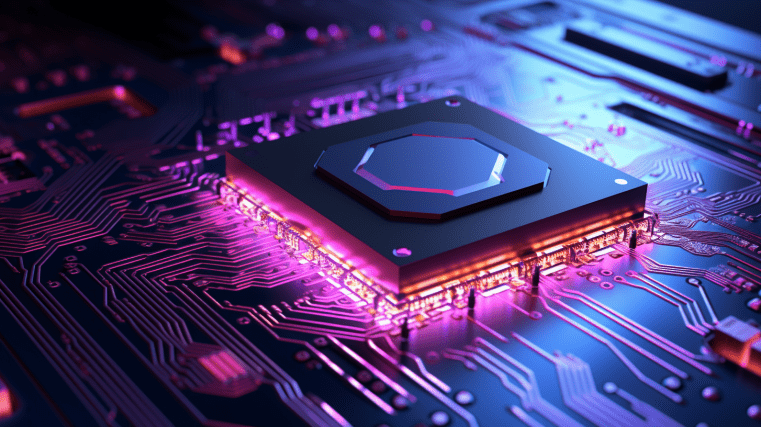Photo was created by Webthat using MidJourney
Tech Pioneer IBM Unveils Groundbreaking ‘Brain-Like’ Chip Prototype
Emerging from IBM‘s labs is a groundbreaking prototype chip that has the potential to revolutionize the energy-efficient of artificial intelligence (AI) systems. Addressing concerns over emissions and energy consumption associated with vast warehouses of computing equipment, this chip could usher in a new era of greener AI technology.
Human Brain Inspiration Drives Energy Efficiency Breakthrough
IBM’s prototype chip boasts energy efficiency comparable to the human brain, which excels in performance while consuming minimal power. This innovation is attributed to components that mimic the intricate connections found within the brain. According to Thanos Vasilopoulos, a scientist at IBM’s Zurich research lab, this efficiency leap could lead to the execution of complex tasks in low-power environments, such as cars, smartphones, and cameras.
Memristors: The Key to Energy Efficiency
Unlike conventional digital chips that rely on binary data storage, the novel chip employs memristors, components capable of storing a spectrum of numerical values. This analog storage approach is akin to the human brain’s functioning, with memristors emulating the behavior of synapses. Professor Ferrante Neri of the University of Surrey explains that this technology aligns with nature-inspired computing, closely mimicking brain processes.
Cautious Optimism Surrounds Brain-Like Chip Evolution
Experts foresee a promising future for memristor-based chips, with the potential for creating networks resembling biological brains. However, challenges on the horizon include material costs and manufacturing complexities. Professor Neri cautiously welcomes these advancements, suggesting the emergence of brain-like chips may be imminent, yet highlighting the intricate journey towards their widespread adoption.
Balancing Analog and Digital Elements for Seamless Integration
IBM’s innovative chip balances the energy-efficient analog memristors with digital components, ensuring compatibility with existing AI systems. With many modern smartphones housing AI chips for tasks like photo processing, this advancement paves the way for increased efficiency, extended battery life, and novel applications. The incorporation of these chips into various devices, from phones to vehicles, promises to reshape their capabilities.
Towards a Greener Future: Saving Energy and Cutting Costs
IBM envisions a future where the enhanced efficiency of chips contributes to substantial energy savings. Replacing power-hungry chips in data centers could result in significant reductions in electricity consumption, potentially alleviating the water-intensive cooling requirements of these facilities. While acknowledging the significance of IBM’s findings, Professor James Davenport of the University of Bath emphasizes that this chip marks an initial step towards addressing energy consumption concerns rather than providing a straightforward solution whic is energy-efficient.


